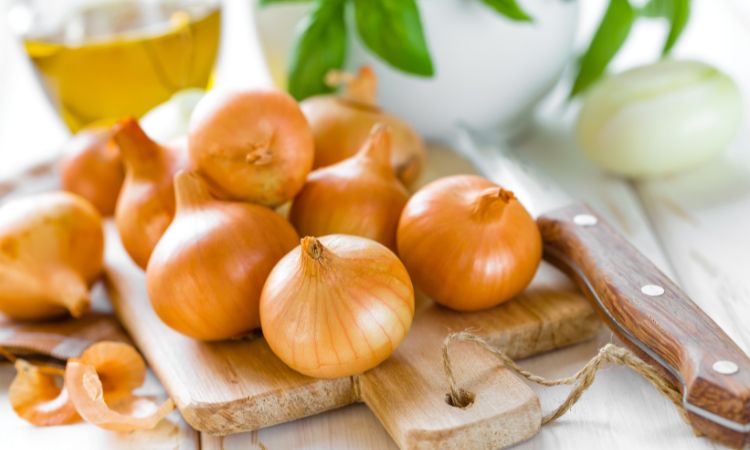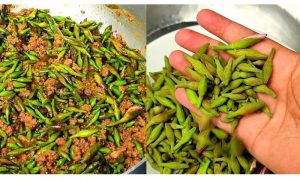Monitoring Desk
ISLAMABAD/MANILA: Onions are increasingly becoming a luxury in the Philippines, with restaurants and households having difficulty preparing dishes.
According to the official statistics, the price of onions surged in the Philippines to around 700 pesos per kg last month. That is more than the meat cost and the daily minimum wage in most Southeast Asian countries.
Although prices have decreased recently, onions are still a luxury for many consumers, Rizalda Maunes, who runs a pizzeria in central Cebu, told the BBC.
Price of onions surges
“We used to buy three to four kilograms of onions daily. Now we buy half a kilogram and that is what we can afford,” Maunes said.
“Our customers understand the situation because it is not just about the restaurants, but the households have a hard time as many dishes are sweetened with onions,” Maunes said.
Ferdinand Marcos Jr, the agriculture secretary, has called rising food prices an “emergency.” Earlier this month, Marcos approved the import of red and yellow onions to boost the supply and meet the demand.
Experts believe that the reopening of the economy was driving demand, while the hard weather impacted the production of food, notably onions.
“The Philippines Department of Agriculture predicted a potential root crop deficit back in August. A few months later, the Philippines was struck by two severe storms that seriously harmed crops,” ING Bank senior economist Nicholas Mapa said.
Mapa said: “We have witnessed a significant rise in demand as the economy recovers fast.”
Street food booths affected by rising price of onions
Street food booths in Cebu, popular with locals and visitors, have also been affected by the rising prices.
“Our meals frequently include onions. To balance out the saltiness of our cuisine, it adds a flavourful crunch and sweetness,” Alex Chua, a stall-holder who has reduced the number of onions, said.
Onions have been so luxurious that in April, Lyka Biorrey, at her wedding in Iloilo City, chose to carry a bouquet of the crop. “I asked my groom if we can use onions instead of flowers since after the wedding, the flowers would wilt and end up being thrown away,” Biorrey told a local newspaper. “So why not onions? It’s practical because it can still be used after the wedding,” she said.
Earlier this month, 10 crew members from Philippine Airlines were investigated for attempting to smuggle nearly 40 kilograms of onions and fruits into luggage bags. Customs officials later said they would not face charges but warned travelers against carrying such products without permits.
The crisis has put pressure on Marcos, who had pledged to boost food production as secretary of agriculture. Some lawmakers have suggested appointing his replacement.
At a hearing on the country’s rising food prices, Philippines Senator Grace Poe said, “Before it was sugar; now, it’s onions. We’ll end up having a hearing for everything in the kitchen.”
Marie-Anne Lezoraine from the Kantar Worldpanel consultancy said that climate change was a significant threat to the country’s food security.
“Purchasing power is tight for most consumers who can afford only the essentials. If climate change causes shortages and, therefore, prices to soar, it will cause a very damaging impact on a large proportion of consumers in the Philippines,” Lezoraine said.
But Mapa said that the price of onions could stabilise as the government imported more of the commodity.
“However, the timing may be unfortunate as it coincides with the February harvest season for locally produced onions,” he says. “Prices may drop dramatically once both harvest and imports hit the market almost simultaneously.”


























